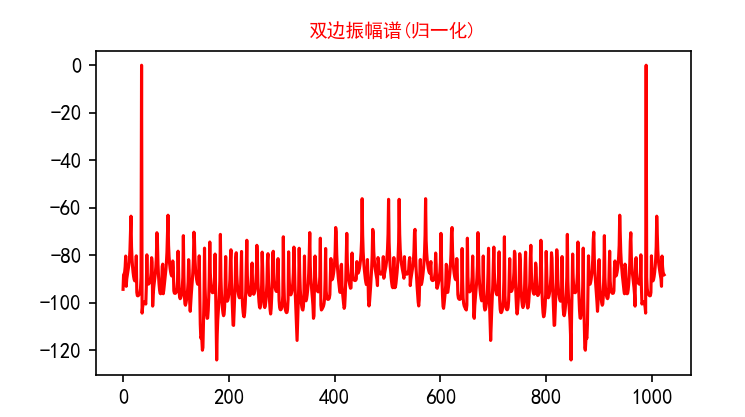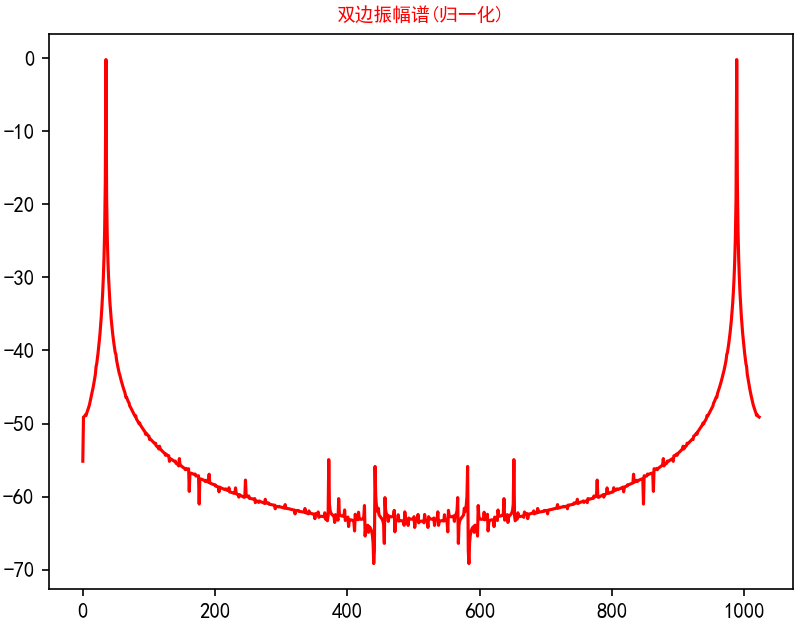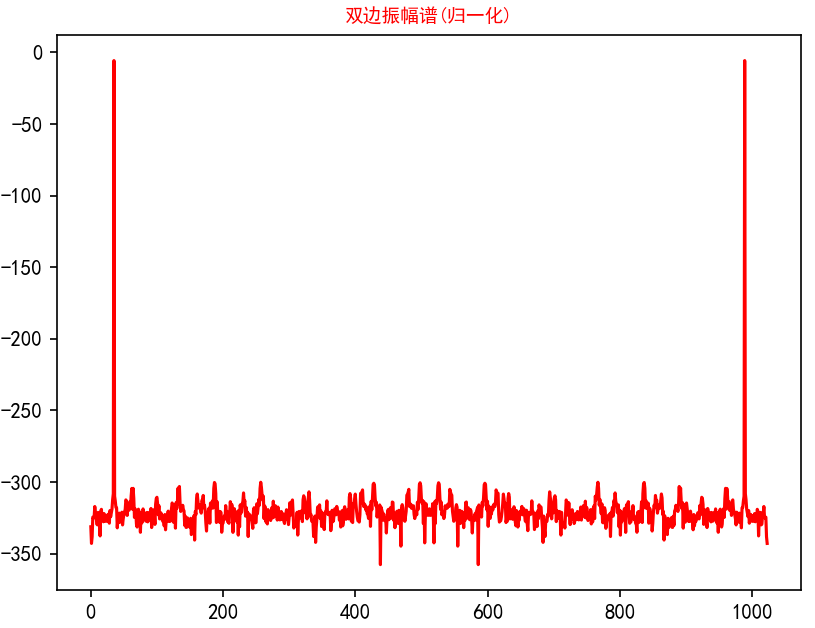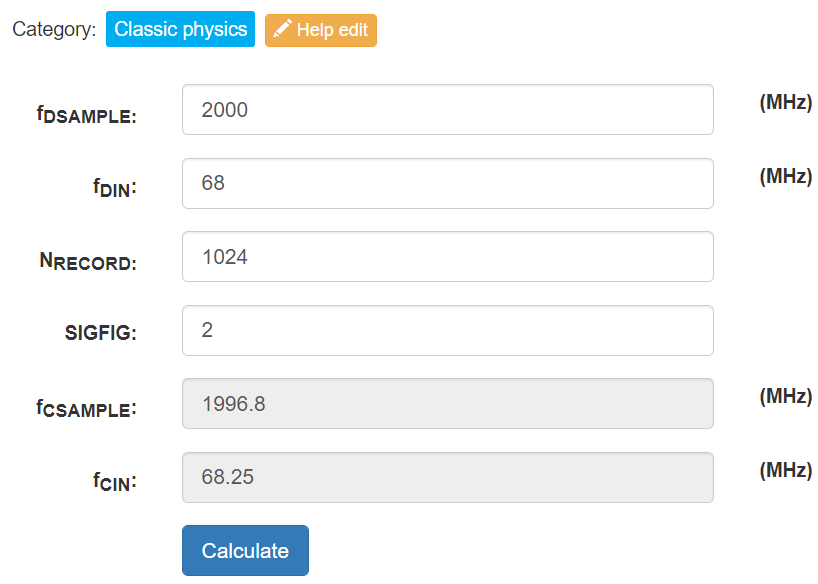import numpy
import numpy as np
from scipy.fftpack import fft
import matplotlib.pyplot as plt
from matplotlib.pylab import mpl
mpl.rcParams['font.sans-serif'] = ['SimHei'] # 显示中文
mpl.rcParams['axes.unicode_minus'] = False # 显示负号
# https://drr.ikcest.org/app/s0019
# fDSAMPLE: 2000, fDIN:68, nRECORD, 1024, SIGFIG: 4
# 采样点选择1400个,因为设置的信号频率分量最高为600赫兹,根据采样定理知采样频率要大于信号频率2倍,
# 所以这里设置采样频率为1400赫兹(即一秒内有1400个采样点)
N = 10000 # 设置1400个采样点
Samples = 1024
Fsignal = 68.25
Fsample = 1996.8
x = [round(2 * np.pi * Fsignal * a * 1 / Fsample, 2) for a in range(N)]
print(x)
# y = 1 * np.sin(2 * np.pi * 68.3585 * x[0:1024])
y = 1 * np.sin(x[0:Samples])
# plt.magnitude_spectrum(y, Fs=1999.9744, scale='dB')
fft_y = fft(y) # 使用快速傅里叶变换,得到的fft_y是长度为N的复数数组
x = np.arange(Samples) # 频率个数(x的取值涉及到横轴的设置,这里暂时忽略,在第二节求频率时讲解)
abs_y = np.abs(fft_y) # 取复数的绝对值,即复数的模
print(abs_y)
normalization_y = abs_y / (Samples / 2) # 归一化处理(双边频谱)
normalization_y[0] /= 2
xxx = 20. * np.log10(normalization_y)
plt.plot(x, xxx, 'r')
# plt.plot(x, normalization_y, 'r')
plt.title('双边振幅谱(归一化)', fontsize=9, color='red')
plt.show()

?显示前面40个数据:第35个数据为1.0
[0.0, 0.0, 0.0, 0.0, 0.0001, 0.0001, 0.0, 0.0, 0.0, 0.0, 0.0001, 0.0001, 0.0001, 0.0001, 0.0003, 0.0007, 0.0002, 0.0001, 0.0001, 0.0, 0.0, 0.0, 0.0, 0.0, 0.0, 0.0001, 0.0, 0.0, 0.0, 0.0, 0.0, 0.0, 0.0, 0.0, 0.0, 1.0, 0.0, 0.0, 0.0, 0.0]35是怎么来的呢?
Samples = 1024
Fsignal = 68.25
Fsample = 1996.8
68.25/(1996.8/1024)=35
1996.8/1024表示频率分辨率,采样频率除以采样点数。
68.25/1996.8=35/1024(fSignal/fSample=M/N(M,N必须互质))。
相干采样要求采样整数个信号周期。这样信号频率就会落在频域的整数点上,不会存在频率泄漏。
信号频率除以频率分辨率,即可得到信号频率在频域的索引。
如果将68.25更改为68,即得到下面的幅频图。可见存在明显的频谱泄漏。

?SIGFIG的位数对SNR的影响很大,位数越大,说明LSB的分辨率越大,6.02n+1.76,说明n越大。下面的处理就是进行精度控制。在没有添加这个函数时,SNR都可以到-300dB,明显不合情理。
round(2 * np.pi * Fsignal * a * 1 / Fsample, 2)

